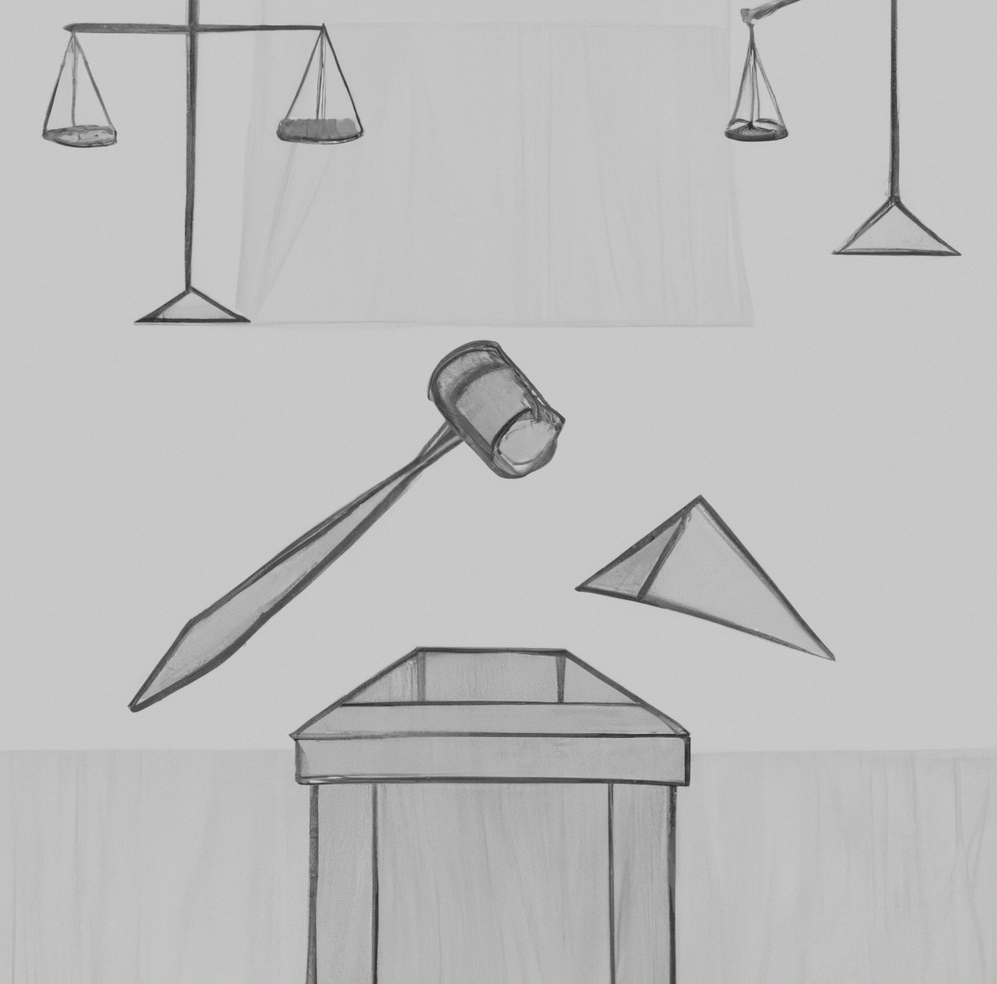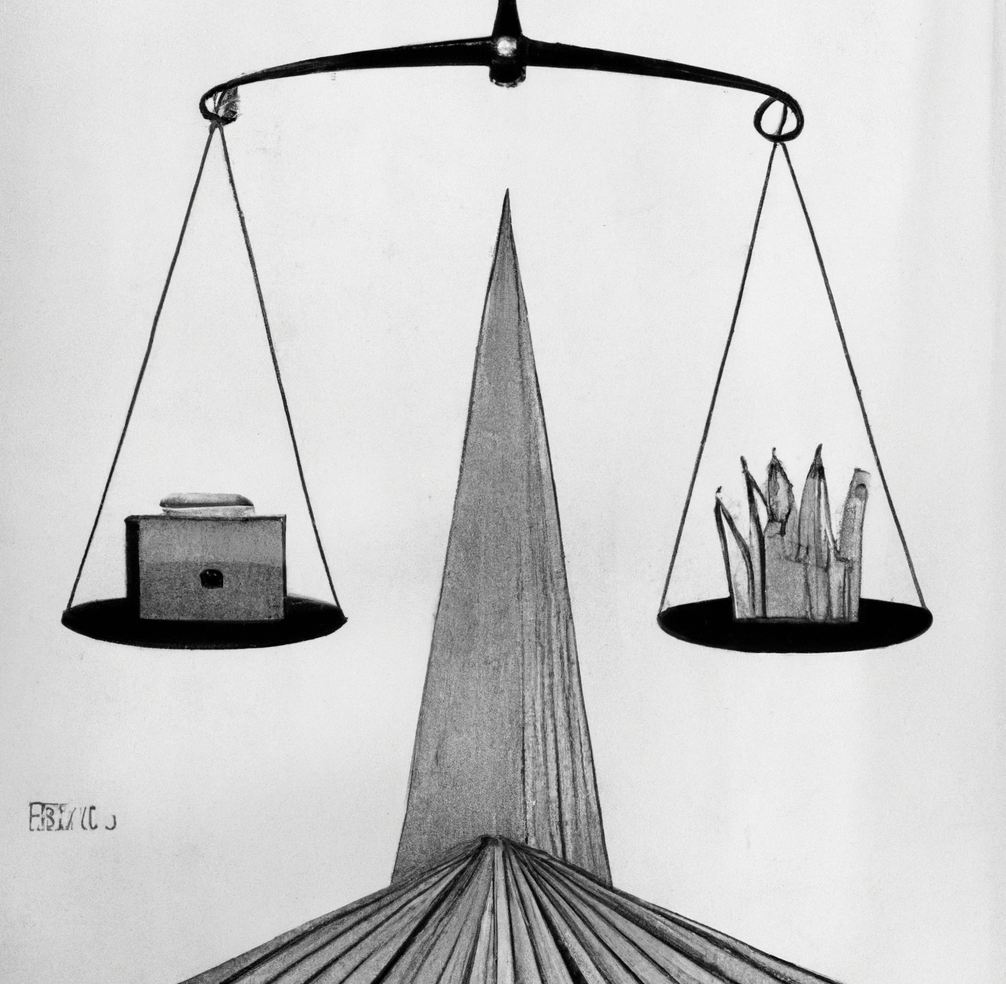What is Business Litigation and What Does a Business Litigation Lawyer Do?
Business litigation is a term that can send shivers down the spine of any entrepreneur. Why? Because it’s a complex, often costly, and time-consuming process that can impact the very foundation of a business. But fear not, in this insightful blog post, we’ll delve into the world of business litigation, unravel its importance, and arm you with the knowledge to navigate it confidently. So buckle up and get ready to become well-versed in all things business litigation.
Short Summary
Business litigation is a legal process used to resolve disputes between businesses, involving specialized skills and knowledge.
A business litigation lawyer provides representation in court, negotiates settlements, offers legal advice on issues related to the dispute, and can provide alternatives such as mediation or arbitration.
It’s important to research an attorney’s experience & fees when selecting one for your needs. Consider reviews & referrals plus look into payment plans/discounts before making a decision.
Understanding Business Litigation

Business litigation is the legal process employed to resolve disputes between businesses of various sizes and types. It’s an integral part of the modern business landscape, and it requires specialized skills and knowledge.
Businesses may consider litigation for a range of reasons, such as enforcing payment rights or safeguarding exclusive intellectual property rights. Litigation can involve a wide range of entities, from small restaurants to large corporations and law firms.
The Legal Process
The legal process of business litigation encompasses the filing of a complaint, conducting discovery, submitting pre-trial motions, engaging in trial proceedings, and pursuing appeals. It’s important to seek legal counsel immediately upon being presented with a complaint, as an experienced attorney can assess the complaint, potential defenses, counterclaims, and third-party claims and help devise a thoughtful response.
Discovery, the process of obtaining evidence from the opposing party, can be a challenging, lengthy, and costly process. Compliance with discovery requests is crucial, as discovery disputes can significantly affect the outcome of a case.
Importance of Business Litigation

Business litigation is essential for safeguarding companies’ interests and upholding contracts. It allows businesses to ensure adherence to contractual obligations, secure their unique rights, safeguard their financial assets, and maintain their competitive edge.
Confidentiality is a crucial aspect of business litigation, as it helps protect confidential or proprietary information. Both parties can enter into confidentiality agreements and mutually seek confidential treatment from the court to prevent publicity and public disclosure.
Key Areas of Business Litigation

There are several key areas of business litigation, including contract disputes, employment matters, intellectual property disputes, and shareholder and partnership conflicts. Understanding these areas can help businesses identify potential issues and know when to seek the assistance of a business litigation lawyer.
A skilled business litigator can provide legal advice, advocate for clients in court proceedings, and facilitate settlement negotiations in all these areas.
Contract Disputes
Contract disputes are among the most prevalent types of business litigation. They often arise due to inadequate documentation or when one party fails to comply with the terms of the agreement.
A business litigation attorney can assist in enforcing contracts and providing defense if another party claims a breach of contract has occurred. Addressing contract disputes promptly is crucial to protect a business’s interests and maintain its reputation.
Employment Issues
Employment issues refer to legal disputes that occur between employers and employees, such as wage disputes, wrongful termination, FMLA disputes, harassment, and discrimination. These issues can have a significant impact on a business’s reputation and bottom line.
An employment litigation attorney is well-equipped to provide guidance and determine the applicable procedures for employment claims. Seeking legal representation in such cases is vital to protect the business’s interests and ensure a fair resolution.
Intellectual Property Conflicts
Intellectual property conflicts involve disputes over ownership or rights to patents, trademarks, copyrights, and trade secrets. These conflicts can arise from unauthorized use of another’s words, images, or logo, corporate espionage, and infringement of intellectual property rights.
A business litigator can assist clients in safeguarding their rights through offering legal counsel, representing them in court proceedings, and negotiating settlements. Protecting a business’s intellectual property is crucial to maintaining its competitive edge and ensuring its long-term success.
Shareholder and Partnership Disagreements
Shareholder and partnership disputes may arise from disagreements regarding the management of the business, misappropriation of funds, breach of agreements, or illegal activities. These disputes can be addressed through negotiation or litigation with the assistance of a partnership dispute lawyer. Resolving such disputes is crucial for maintaining a harmonious business environment and protecting the company’s interests.
In some instances, shareholders can file for an injunction or seek damages to fight oppression. In the extreme scenario, a court order may be issued for dissolution of the corporation or liquidation of assets.
The Role of a Business Litigation Lawyer

A business litigation lawyer is a legal specialist who handles both minor and major legal matters, including lawsuits, that a business may need to address as part of their operations. Their responsibilities include providing legal representation to businesses in disputes, handling legal issues related to the case, researching cases, composing legal documents, establishing diverse corporate protocols, managing budgets, confirming compliance with regulations, and communicating with clients and other parties involved in the case.
Additionally, a business litigation lawyer must be knowledgeable in a variety of areas, including contract law, corporate law, and intellectual property law. They must also be able to interpret and apply the law to the facts of the case. They must also be able to learn.
Advising on Legal Issues
A business litigation lawyer’s advice on legal issues is crucial for businesses facing disputes or potential litigation. Their expertise in the relevant area of law, familiarity with the court system, and knowledge of local laws and regulations can help businesses make informed decisions and navigate the complexities of litigation.
By seeking legal counsel, businesses can better understand their rights and obligations, as well as the potential consequences of their actions, ensuring a more favorable outcome.
Representing Clients in Court
In representing clients in court, a business litigation lawyer is responsible for filing papers with the court system, communicating with the other party involved in the lawsuit, and advocating for their client’s interests. Navigating a lawsuit can be complex and time-consuming, but with the help of a skilled attorney, businesses can effectively manage the process and achieve a favorable resolution.
The expertise and experience of a business litigation lawyer are invaluable in protecting a company’s interests and ensuring a successful outcome.
Negotiating Settlements
Negotiating settlements is another critical aspect of a business litigation lawyer’s role. They can provide legal counsel, represent clients in court proceedings, and engage in informal negotiations to reach a resolution. Successful negotiations can lead to prompt and effective resolution of disputes, reducing the need for costly court proceedings and helping to maintain positive relationships between parties.
To ensure successful negotiations, it’s essential to be well-prepared, open to compromise, aware of the other party’s interests, and willing to listen.
Alternatives to Business Litigation

While business litigation is often necessary to resolve disputes, it’s not the only option available. Alternatives to business litigation, such as mediation and arbitration, can achieve a business’ desired results without the need for litigation.
However, it’s still essential to have legal counsel, as alternative dispute resolution (ADR) methods can have significant consequences. Let’s take a closer look at these alternatives and their potential benefits and drawbacks.
Mediation
Mediation is a constructive dispute resolution process in which a neutral third party assists negotiations between parties to enable them to develop their own, mutually satisfactory solutions. The mediator poses questions, restates issues, guides the parties in understanding one another, and aids in pinpointing potential solutions.
Mediation is typically less costly and faster than litigation, and it allows the parties to have control over the resolution of the dispute. This cooperative approach to settling disputes can help maintain relationships and avoid the adversarial nature of litigation.
Arbitration
Arbitration is a private dispute resolution process in which the parties involved agree to submit a dispute to one or more arbitrators to make a binding decision. It is often utilized as an alternative to litigation.
The process of arbitration involves the parties submitting their dispute to an arbitrator or panel of arbitrators, who will then consider the evidence and arguments of both sides and render a binding decision. Arbitration is typically faster and more cost-effective than litigation, and the parties can select the arbitrator or panel of arbitrators.
However, the binding nature of the arbitrator’s decision, which cannot be appealed, may be a drawback for some parties.
Choosing the Right Business Litigation Attorney

Selecting the right business litigation attorney is a crucial step in ensuring a successful outcome for your case. By considering factors such as experience, reputation, fees, and communication style, you can find the attorney best suited to your needs and situation.
In the following sections, we’ll provide some tips for finding the right attorney and discuss the factors you should take into account when making your decision.
Factors to Consider
When selecting a business litigation attorney, it’s essential to evaluate their expertise, standing, specialization, track record, communication abilities, and expense. Review testimonials from past clients, accolades or acknowledgements they have obtained, and verify their reputation with the local bar association.
Also, examine their professional affiliations and any disciplinary actions that have been imposed upon them. Considering these factors will help you make an informed decision and ensure you have the best legal representation for your case.
Tips for Finding the Right Attorney
To find the right business litigation attorney, research online reviews, ask for referrals from friends, family, or colleagues, and interview multiple attorneys. Assess their experience in the pertinent area of law, their familiarity with the court system, and their knowledge of local laws and regulations.
Additionally, examine their fees and billing structure, and inquire about payment plans or discounts if necessary. By following these tips and carefully considering the factors discussed in the previous section, you can find the ideal attorney to represent your interests and achieve a successful outcome for your case.
Summary
Business litigation is a complex and often daunting aspect of the business world, but with the right knowledge and legal representation, you can navigate it confidently. Understanding the key areas of business litigation, the role of a business litigation lawyer, and the alternatives to litigation will empower you to make informed decisions and protect your business’s interests. By choosing the right business litigation attorney and considering the various factors we’ve discussed, you’ll be well-equipped to face any legal challenges that come your way. So, go forth and conquer the world of business litigation, armed with the knowledge and confidence to succeed.
Frequently Asked Questions
What is litigation in a business?
Litigation in business deals with disputes between businesses and other parties that are of a non-criminal nature. It can involve contracts, breach of contract, fraud, labor disputes, and intellectual property rights issues.
Businesses must be prepared for such disputes to ensure their interests are represented and protected in court.
What is the primary reason for business litigation?
The primary reason for business litigation is to hold people and companies accountable for breach of contract, ensuring that all parties are fulfilling their obligations under a contractual agreement.
What is the difference between business law and litigation?
Business law is generally used to refer to the overall legal regulations and principles governing the operation of businesses. Litigation, on the other hand, focuses more on the legal proceedings of those regulations and their enforcement.
Business litigation can be defined as the use of legal action to resolve a dispute between two parties, typically involving contractual or civil obligations.
What is the difference between litigation and suing?
The key difference between litigation and suing is that litigation covers the entire process of resolving a legal dispute, while suing is one specific action within the litigation process. Litigation begins before a lawsuit is ever filed and continues after a verdict is reached, making it more than just a single event.
Let a Jacksonville Business Attorney Help
Do you have more questions about business law? Our team at Montague Law can provide you with the answers you want. You can easily contact an Jacksonville business attorney by calling us at 904-234-5653. Allow us to walk you through each step of this legal process.